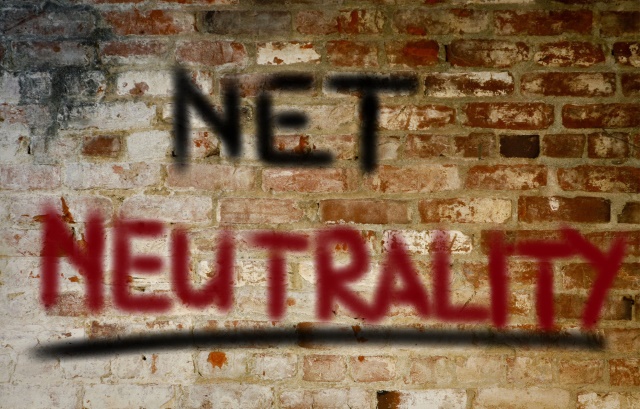
Net Neutrality is over: Here are three things to know and do
On December 14, 2017 the United States Federal Communications voted to end Net Neutrality. In other words, they are reversing a 2015 FCC vote to classify Internet Service Providers (ISPs) as "common carriers" rather than "information providers" according to Title II of the Communications Act of 1934 and Section 706 of the Telecommunications Act of 1996.
As common carriers, ISPs must provide equal access to all consumers and all businesses on all devices. They cannot throttle traffic, or block certain web sites, or charge more for consumers to access specific URLs such as www.amazon.com, www.netflix.com, or www.washingtonpost.com.

The case against Net Neutrality: An IT pro's perspective
As the vote to determine the fate of Net Neutrality regulations looms in the FCC, I've been taking a harder look at where I stand on the issue. Personally, I've got vested interests as a consumer that relies on many net-connected services in my daily life. And professionally, I own an IT business that lives and dies by the availability of countless net-centric ecosystems. But every angle from which I examine the issue upon, I keep coming back to a common conclusion: Net Neutrality just isn't needed.
Before you slam your keyboard and roll me in as some blind Trump admin shill, I want to be transparent about my background. I've been working professionally in the IT industry for almost 13 years now, and have run the Managed IT Services tech business FireLogic for the last 8 of those. That's in addition to a Master's degree in IT PM, countless tech certifications, and being on the SME advisory committee for the globally recognized Computing Technology Industry Association.
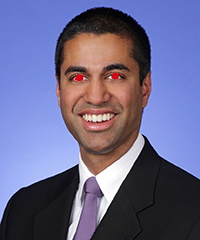
Net Neutrality will die, so let's take the profit out of killing it
The U.S. Federal Communication Commission, under the leadership of chairman Ajit Pai, will next week set in motion the end of Net Neutrality in the USA. This is an unfortunate situation that will cause lots of news stories to be written in the days ahead, but I’m pretty sure the fix is in and this change is going to happen.
No matter how many protesters march on their local Verizon store, no matter how many impassioned editorials are written, it’s going to happen. The real question is what can be done in response to take the profit out of killing it? I have a plan.

FCC could repeal net neutrality rules in December
It is fair to say that many people want the net neutrality rules implemented during the Obama administration to stay in place. Even major tech companies support them. But not everyone feels the same -- just ask telecommunications companies what they think about it.
The Trump administration is among the main opponents, with FCC Chairman Ajit Pai spearheading the efforts to repeal the rules. Today, the federal agency announces it's shared a draft, called Restoring Internet Freedom Order, that aims to do just that.
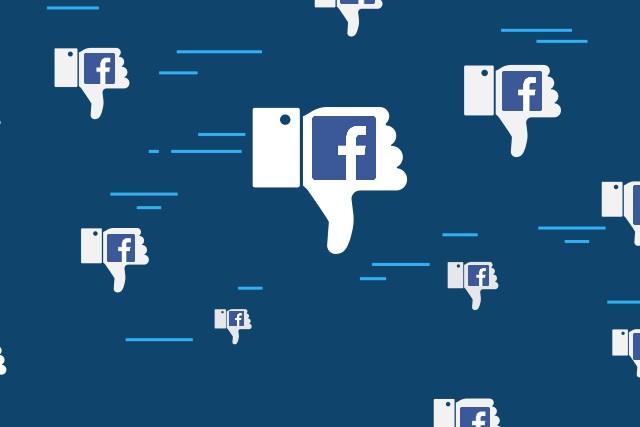
Report: Free Basics by Facebook is creepy, limited, and violates net neutrality
It's been a little while since we heard anything about Free Basics by Facebook -- the successor to its Internet.org project which aims to provide access to a number of online services, free of charge, in developing countries (63 in total) -- but a new report slams the service.
On the face of it, this is a good thing, but Free Basics from Facebook has certainly not been without its controversies: the service was banned in India and Egypt, for example. Now a report from Global Voices -- a "global anti-censorship network of bloggers and activists dedicated to protecting freedom of expression online" -- has published a damning report about the service.
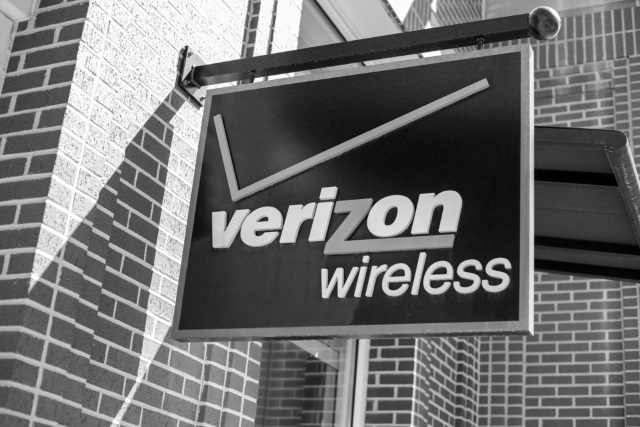
Verizon's 'video optimization' test throttles Netflix and YouTube
Verizon Wireless customers complained this week that the company was throttling Netflix traffic. With talk of net neutrality ringing in their ears, people were upset to find that download speeds were capped at 10Mbps.
When Netflix denied implementing a cap, the finger of suspicion pointed at Verizon. Now the company has owned up to testing a new "video optimization" system, but it's not clear how this resulted in the cap-like effects experienced by many users.

Google and Facebook to participate in net neutrality protest next week
Two of the biggest names in tech have finally added their names to a growing list of participants in a protest next week against the FCC's plans to tear up net neutrality rules.
Google and Facebook have confirmed they will take part in the July 12 protest which is known variously as the "Day of Action," the "Battle for the Net" and -- rather more wordily -- the "Internet-wide Day of Action to Save Net Neutrality." Precisely what form the companies' participation will take remains to be seen, but the involvement of two such big names will send a clear message to the FCC.

US and Europe have different ideas about data and privacy
With a recent, but less publicized executive order from President Trump, there are things happening on both sides of the Atlantic with regard to personal data, and it looks like the US and the EU have very different ideas about which direction to take.
We all leave a digital trail these days, just going about our daily business. Much of it we don't think about, and we often consciously choose to trade this personal data ourselves, in exchange for free services. Think about it, your Internet searches, social media, the websites you visit and your location while you're doing it, even exercise activity and your home heating usage via a smart thermostat, all have data harvested and monetized by big business.

Net neutrality repeal? Bad idea, say IT pros
The vast majority of IT professionals (82 percent) that manage computer systems and Internet services of US-based businesses are in support of net neutrality.
This is the conclusion of a recently released report by Spiceworks, which tackles the topic of net neutrality and how its abolishment might affect businesses.

EFF: T-Mobile One plan may break net neutrality rules
The Electronic Frontier Foundation believes that T-Mobile's new One plan, which offers unlimited data, calls, and texts, may fall afoul of net neutrality rules due to the restrictions that it imposes on how customers can consume data.
T-Mobile One, which was announced yesterday, is claimed to do away with data "buckets", which CEO John Legere calls "the single biggest pain point in wireless", but limits the quality of video streams for customers who do not wish to pay an additional monthly fee to enjoy high-definition content.

FCC cannot investigate Netflix for throttling its own customers
Netflix last week revealed that it has throttled the video streams of customers who have been accessing its service from AT&T's and Verizon's networks, after the two carriers were believed to be at fault. The company says that this has been done to keep those users from exceeding their monthly data plans, but some believe the video streaming service has taken things too far, right into the net neutrality danger zone.
Despite offering what looks to be a good reason for the throttling, Netflix is still in the wrong. Customers were not informed of the company's decision before it went into effect more than five years ago. There is no way of turning the "feature" off, at least not until a data saver option is introduced in May. And the focus of the throttling has been rather limited, with this move not extending to other carriers in US, like Sprint and T-Mobile. So, obviously, affected customers have very good reasons to complain.
Netflix admits throttling Verizon and AT&T customers
Despite accusation to the contrary, AT&T and Verizon have not been throttling the connections of Netflix customers -- but Netflix has. The streaming video service has admitted that it has limited the video quality that can be accessed by AT&T and Verizon customers for over five years.
In an astonishing revelation to the Wall Street Journal, Netflix -- a long-standing and vocal supporter of net neutrality -- fessed up to limiting mobile streams for some users to just 600 kbps. The reason provided for this is that the throttling prevents users from exceeding their monthly data limits... but the same throttling is not applied to Sprint and T-Mobile.
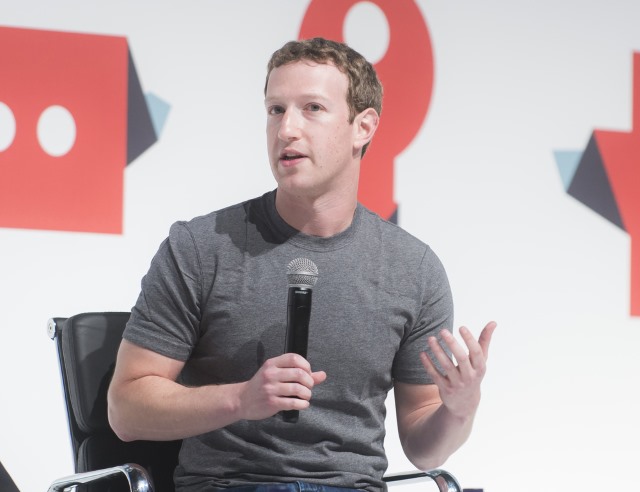
Mark Zuckerberg is 'disappointed' at India Free Basics ban and vows to fight on
Facebook was dealt a blow today when its Free Basics program was banned in India for contravening net neutrality rules. As you would expect, Mark Zuckerberg is more than a little disappointed, but the Facebook founder says he remains "committed to keep working to break down barriers to connectivity in India and around the world".
In a somewhat bitter-sounding post on Facebook, Zuckerberg reiterated his belief that "everyone in the world should have access to the internet". But as well as hitting out at the Telecom Regulatory Authority of India (TRAI), he also says he wants to keep driving to connect the whole of India to the internet to "help lift people out of poverty, create millions of jobs and spread education opportunities".
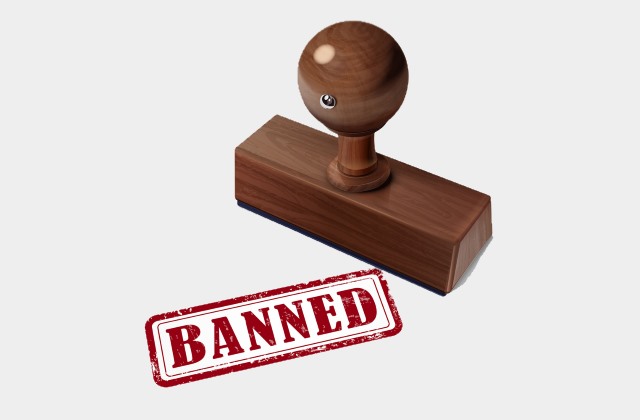
India bans Facebook's Free Basics for contravening net neutrality rules
The Telecom Regulatory Authority of India (TRAI) has ruled in favor of net neutrality laws, effectively banning Facebook's beleaguered and controversial Free Basics program. In a win for net neutrality proponents, the telecom regulator ruled against "discriminatory tariffs for data services" saying that internet access should be provided on an equal basis.
Mark Zuckerberg's dream of connecting the entire world to the internet has met with controversy ever since it was first announced because of the way it only provides access to a limited number of websites from select Facebook partners.

EFF vs John Legere
John Legere waved his magic spin-control wand today, following accusations from Google and the EFF—that's Electronic Frontier Foundation to you, Bud—that the cellular carrier throttles video streams in violation of Net Neutrality rules. In a video, T-Mobile's CEO calls the throttling accusations a "game of semantics" and "bullshit".
"We give our customers more choices, and these jerks are complaining?" Legere blasts. "Who the Hell do they think they are? What gives them the right to dictate what my customers or any wireless consumer can choose for themselves?" I wonder, too.
